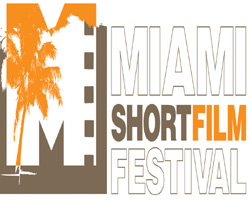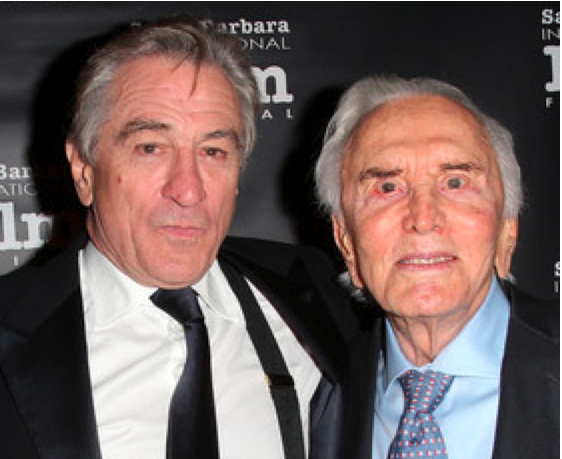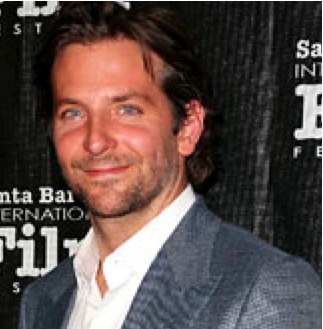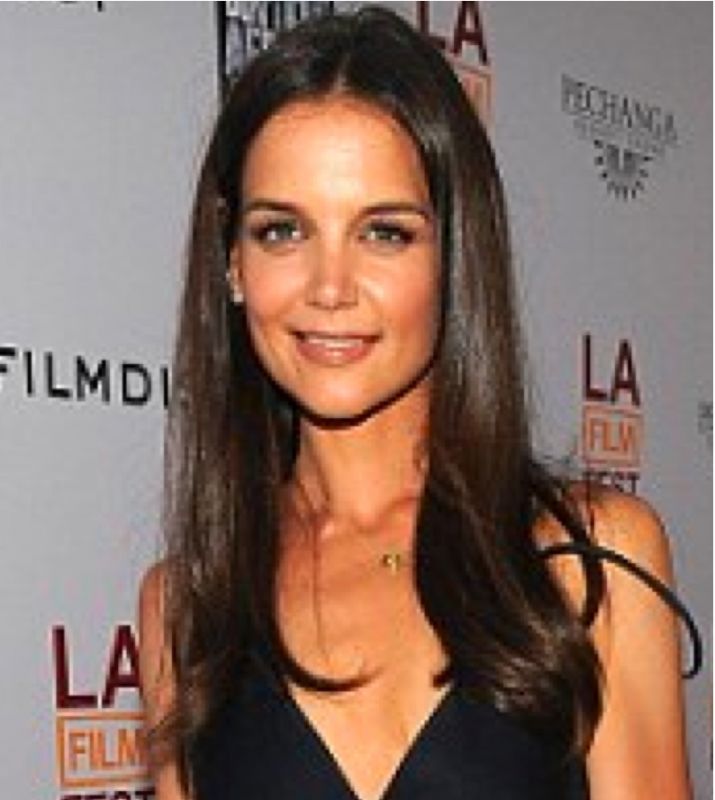|
|
||
|
Pro Tools
FILMFESTIVALS | 24/7 world wide coverageWelcome ! Enjoy the best of both worlds: Film & Festival News, exploring the best of the film festivals community. Launched in 1995, relentlessly connecting films to festivals, documenting and promoting festivals worldwide. Sorry for the disruptions we are working on the platform as of today. For collaboration, editorial contributions, or publicity, please send us an email here. User loginActive Members |
Quendrith JohnsonQuendrith Johnson is filmfestivals.com Los Angeles Correspondent covering everything happening in film in Hollywood... Well, the most interesting things, anyway.  TORN FROM THE FLAG? Klaudia Kovacs' Film is Torn from Historyby Quendrith Johnson, Los Angeles Correspondent
Documentary films are supposed to wake us up -- usually to some strange sub-culture (read: the world of Baby Beauty Pageants or Professional Eating Contests) -- to give a glimpse at how remarkably bizarre human beings can be. Typically with films, we're allowed to become voyeurs, stare agape at the amusing spectacle of mankind. Not so with TORN FROM THE FLAG, filmmaker Klaudia Kovacs' chronicle of the 1956 October Revolution in Hungary that was a high-water mark of the Cold War.
In TORN, we are compelled to find our own sense of personal political responsibility, even genealogical threads, woven into this documentary. But there is also an extremely powerful allegory embodied in the developments that occurred during this tumultuous period in the world.
Remarkably, the film begins with a cogent opening statement about the Cold War's origins in Budapest from Otto von Hapsburg, son of Emporer Charles II. He is a delicate, bespectacled elderly man who would be heir to the throne of the Austro-Hungarian empire had he not abdicated in 1961.
Von Hapsburg's opening salvo plays over a montage of Stalinist marches, speeches from Khrushchev, Kennedy, and a mushroom cloud.
"We, today, do not realize there was a third World War, and that is what we call 'The Cold War.' And the decisive battle of the Cold War took place here in Hungary."
Newsreel narration finishes the thought: "At Yalta, in the Soviet Crimea, world leaders from three great states meet to write the epitaph of Fascist aggression. Britain, the USSR, and the United States plan to consolidate the gains of this war. Out of victory the larger responsibility of peace appears."
Historic frames of Roosevelt, Stalin, and Churchill in conference imply goodwill. "We were sold down the river in Yalta," von Hapsburg retorts. "The Russians received Hungary," and other surrounding sovereign nations that would soon become Communist Block countries.
So begins the Cold War and TORN.
Noteworthy cameos (i.e.; newsman Edward R. Murrow, Dwight D. Eisenhower, Hungarian Dictator Rakosi) are featured, as well as soul-wrenching recaps from ordinary people who succeeded in fighting off the yoke of Soviet domination after the Russian territory grab at Yalta.
Nobel Peace Prize winner Henry Kissinger, former US Secretary of State (1973 - 1977) and Foreign Policy Advisor, makes quite an impressive talking head.
"We lived with the consequence that decisions we made could cause 100's of millions of casualties."
He is, in a word, magnificent -- harking back to a time when politics around the world, and in the US, was not just a beauty contest (consider Sarkozy-Bruni or the Obama phenom).
Still razor sharp, Kissinger intones admonitions about the lasting effects of ill-conceived global political agendas, world leaders' inherent shortsightedness, and the dangers of enlisting oppression as an effective public policy initiative -- all with his usual brio.
Other substantive geo-political thinkers include Csaba Bekes, Founding Director of the Cold War History Research Center in Budapest; William Taubman, the 2004 Pulitzer Prize winner for Khrushchev's biography; and historian Dr. Mark Kramer, who is also Harvard University's Director of the Cold War Studies Project. These guys know their "stuff," to put it in layman's terms.
But perhaps the most jaw-dropping part of Kovacs' October '56 exploration is the tales of peasants, politicos, poets, and soldiers who created the momentum to throw off Stalinist ideology.
Factory Worker Istvan Porubsky was scared "spitless," but devised an ingenious way to deflect Russians tanks. "We turned over soup plates," lined them up on the roads. The Russians "thought they were land mines!"
Poet Inez Kemenes recounts her spiritual and intellectual arc from gung-ho Stalinist youth to full-blown Hungarian political insurgent. "I wanted to work. So they had me sit on a board and pull out nails. We believed we were building a Socialist dream. Everybody would be happy."
"At 15 if anybody told me to go and be a suicide bomber for freedom of the world, I would not have hesitated for a second." Yet, with the revelations about Stalin's regime, "we felt raped." Kemenes adds "our soul was raped... one by one, things turned out to be not as we had believed."
George Vassiliou, who later became President of Cyprus from 1988 to 1993, talks of his days as a Communist Activist turned political refugee in Hungary.
Arpad Nagy recalls his incredible psychological journey from AVO (Hungarian Secret Service) agent to anti-AVO activist. "There was blood everywhere... I said 'God, where am I?'"
Businessman George Mismas, who escaped to the West, painstakingly remembers his time as a boy in the Gulag, and how the "testical torture" finally broke his father's spirit. "He was never the same after that... but (Imre) Nagy came in and finally closed the camps."
Laszlo Dozsa, a schoolboy turned street fighter who had essentially been a child soldier during the conflict, said he was left for dead in a mass grave. "There were 30 or 40 of us." Gravediggers "threw lime dust on us, and my muscles twitched."
"One of the gravediggers said 'Look! The kid's alive!"
Ferenc Varnai, a former Communist Official, recalls being present at the 20th Party Congress when Khrushchev made the "secret speech" that shocked the world, denouncing Stalin as a war criminal.
Stalin's stunning crimes against humanity were revealed: Mass Executions, Systematic Torture, Mass Deportations, Mass Starvation, and Genocide.
Hungarian Army Officer Robert Szalay details the exhilaration of tearing down Josef Stalin's huge statuary. When the outsized leader wouldn't budge, the crowd used "a big beast of a truck," hacksaws, hammers, anything and everything, to beat down the bronze likeness.
Then, with wire cables snapping all around as the bulk of the Soviet figurehead fell, only "his boots" were left standing, Szalay exalts.
Arguably one of the most gripping personal stories comes from Arpad Szlama.
Szlama was a Hungarian Army officer turned insurgent before he was locked away for 15 years. He remembers being set free and, with the mindset of a 26-year-old, having to greet the reflection of a 41-year-old man for the first time. "It broke me."
As a political prisoner freed after Stalin's death, Szlama "only wanted revenge" on society. But, "I heard a little girl in the next room ask 'Is he going to become my Daddy?' And all the fight went out of me. I knew I had to rebuild, to live again."
Unfortunately, Arpad Szlama died in 2007, but you'd be hard-pressed to find a more emotionally resilient human being anywhere in the world.
That said, what Klaudia Kovacs does in this documentary is to provide a nuts-and-bold assessment of the rise of state-sponsored oppression and its consequent toll on the citizenry.
While "collectives" usurp private property and obliterate personal gain, the cultural environment creates a stranglehold on intellectuals who are dubbed "the ruling class."
The proletariat, workers of the field, are ostensibly lauded until the mask is ripped off the ideology; farmers are "sent to jail for slaughtering two pigs instead of one."
As mentioned, sewn into the narrative threads of TORN, you begin to note parallels to now.
Collectives take over the "mom and pop shops" in Hungary (insert: corporate entities like Starbucks and Borders taking over independent bookstores and family-owned coffee houses).
Before the '56 October Revolution there is a climate of suspicion in the country (insert: Homeland Security); mass immigrant deportations and arrests-without-cause are rampant (insert: Draconian immigration laws floated in Arizona).
The catch-phrase became, according to Tool and Die Maker Gyorgy Lassan, "there are only three kinds of Hungarians -- those who are in jail, those who have been in jail, and those who will be sent to jail" (insert: privatization of the prison system in California).
Slowly, as a direct result of the peasant and student uprisings in Budapest, countered by the brutal military response from Soviet tanks seen by the civilized world, the geographic dominoes of Soviet domination clatter as they fall in a crescendo with US and Russian cooperation by 1989.
The topper is the line that made former US President Ronald Reagan famous: "Mr. Gorbachev, will you tear down that Wall?"
In the credits, Kovacs' thanks a laundry list of donors, investors, Hungarians and emigres, historians, and below-the-line folks, including the legendary Director of Photography Vilmos Zsigmond, ASC, and TORN DP Laszlo Kovacs, ASC, (not related). Zsigmond and Laszlo Kovacs are Executive Producers on the project.
Zsigmond, Kovacs and cinematographer Jozsef Miko, are significant because these three actually shot some of the real-time footage during the period. The title, TORN FROM THE FLAG, triumphantly reveals its meaning in the archival footage.
In sum, TORN with subtitles and in English, is not to be missed; it has the kind of gravitas that reminds us why movies are important, why we gather in public spaces known as theatres, and how the rights, freedoms and dignity of the individual did not show up overnight, but took years of bloody resistance to brutal abuses of authority to achieve.
Visit the website www.tornfromtheflag.com to find out more.
# # #
11.08.2010 | Quendrith Johnson's blog Cat. : advisor Arizona Arpad Nagy Budapest businessman California Churchill Cold War History Research Center Collectives Congress Contact Details Csaba Bekes Cyprus Director Director of the Cold War Studies Project Dwight D. Eisenhower Edward R. Murrow Emporer Charles II Entertainment Entertainment executive Family Relation Films Founding George Mismas George Vassiliou Gorbachev Gyorgy Lassan Harvard University Henry Kissinger historian Human Interest Human Interest Hungarian Army Hungarian film Hungary Hungary Josef Stalin Jozsef Miko Khrushchev Klaudia Kovacs Laszlo Dozsa Laszlo Kovacs Los Angeles Mark Kramer officer Otto von Hapsburg Person Career Politics Politics president Private Quotation Robert Szalay Ronald Reagan Roosevelt Secretary of State Social Issues Social Issues Starbucks Szlama Technology Technology Torn from the Flag United States Vilmos Sigsmond William Taubman www.tornfromtheflag.com
|
LinksThe Bulletin Board > The Bulletin Board Blog Following News Interview with EFM (Berlin) Director
Interview with IFTA Chairman (AFM)
Interview with Cannes Marche du Film Director
Filmfestivals.com dailies live coverage from > Live from India
Useful links for the indies: > Big files transfer
+ SUBSCRIBE to the weekly Newsletter DealsUser imagesAbout Quendrith JohnsonThe EditorUser contributions |









 Johnson Quendrith
Johnson Quendrith 


